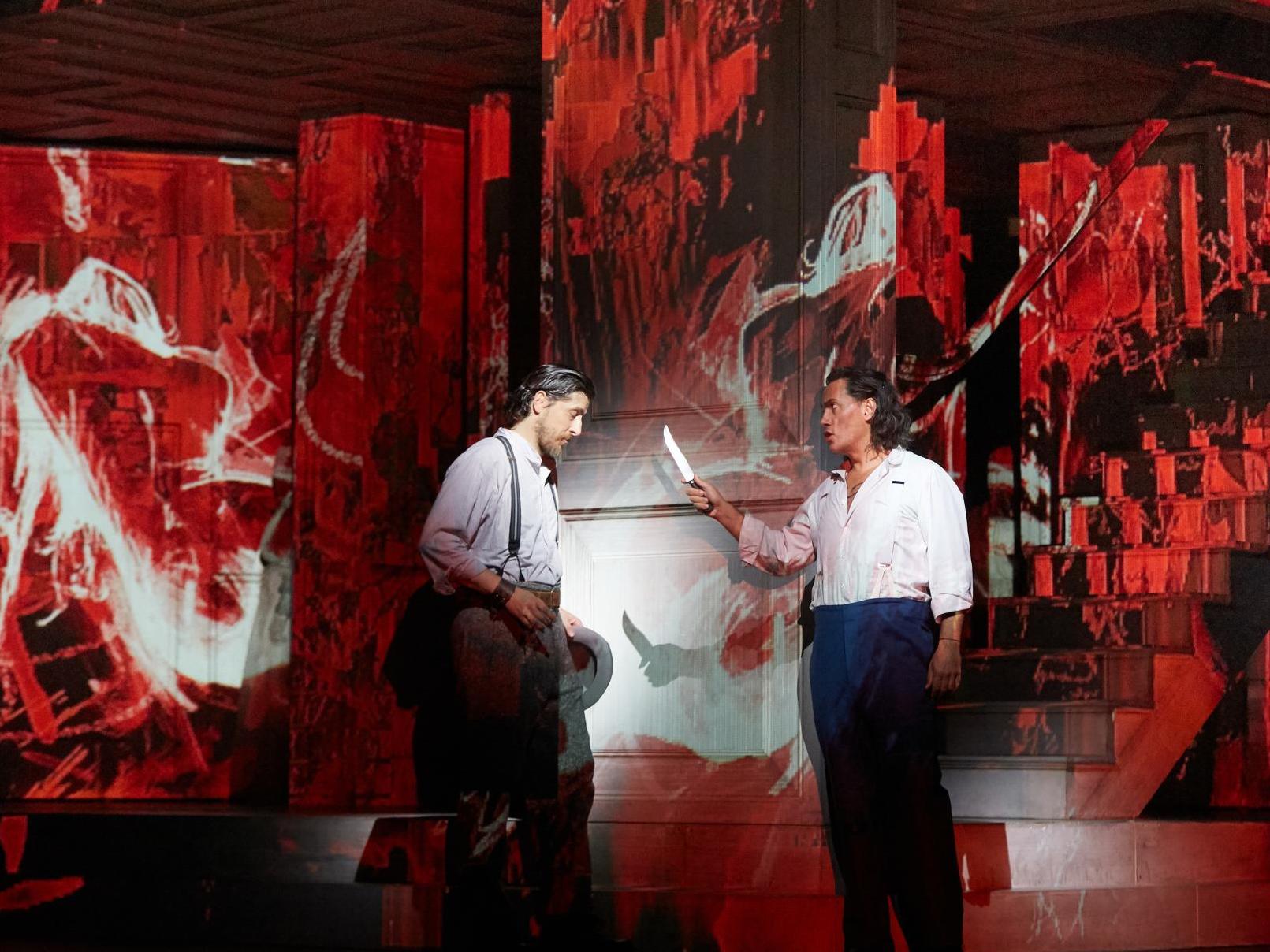Royal Opera House’s Covent Garden revivals review: Don Giovanni and Werther
The new season has opened with two productions of differing quality

Don Giovanni ★★★★☆
Werther ★★☆☆☆
Playing safe before the fireworks of Barrie Kosky’s Agrippina later this week, Covent Garden has opened its season with two revivals, the first of which makes a stunning evening. Kasper Holten’s production of Don Giovanni, whose designs by Es Devlin initially seemed irritatingly obtrusive, has now settled satisfyingly under the guidance of a series of revival directors – this time Jack Furness – and boasts an ideal cast on world-beating form. The endlessly turning white cube with its Escher stairways and its ever-changing light projections allows Holten’s visual games to play out suggestively, with the Don omnipresent, and with Donna Anna shown to be less principled than the text would have us believe.
But negatives first, most glaringly the murder scene. Why do directors so rarely follow the instructions of the text where Donna Anna discovers her father’s bleeding corpse? The way Swedish soprano Malin Byström, who is this Donna Anna, responds may follow precedent, but it makes a nonsense of the words she sings. His face is waxen, she laments, and his limbs are cold – but how would she know? She hasn’t even looked at his slumped body, let alone touched him: she and her paramour Don Ottavio (Daniel Behle) are encouraged to deliver their impassioned outbursts facing the audience full-on, with the victim unregarded to one side. Moreover, there is no evidence here of the fainting fit which Ottavio wants to cure with smelling salts – this Donna Anna is in full possession of her faculties. Mozart and his librettist clearly wanted gritty realism in this scene: did the singers demand the right to stand and deliver? Was the director too weak to say no?
But in every other way this is one of the most musically magnificent productions of this work I’ve ever seen. Behle offers the purest bel canto, Bystrom’s singing has a silken beauty, Brindley Sherratt makes an unusually moving Commendatore, and Myrto Papatanasiu’s jack-in-the-box Donna Elvira is an electrifying vocal presence. Meanwhile the young betrotheds are unimprovable: Louise Alder’s flighty Zerlina has winning charm, while Leon Kosavic’s gauchely vulnerable Masetto radiates comic pathos. And with Roberto Tagliavini’s Leporello and Erwin Schrott’s Giovanni we get a definitive pairing. With a voice like thunder, Tagliavini makes a perfect foil for Schrott, whose Don exudes a lethal cocktail of qualities: menace allied to honeyed seductiveness, brazen opportunism undermined by compulsive cack-handedness, and all commandingly sung.
Covent Garden’s other revival – of Massenet’s Werther – is not on the same exalted level, despite Juan Diego Florez being in the title role and the much-lauded Isabel Leonard in the role of his lover Charlotte. Based on Goethe’s novel, whose protagonist blows his brains out in unrequited love, this work is problematic, in that its plot is flimsy and its characterisation stereotyped, with its score only reflecting Massenet’s music at its best in the final scene; moreover, that scene seems to belong to another opera, its emotional mechanics palely following those of the final scene of Verdi’s Traviata.
Since Benoit Jacquot’s staging is stodgy and inert, the singers act their heads off in attempts to breathe life into it – heroically, in the case of Heather Engebretson’s Sophie – but the two principals simply don’t cut the mustard. Leonard’s singing has a cold efficiency but no trace of real emotion, while poor Florez, left to bear the weight of the evening, is not equal to the challenge. Edward Gardner, in the pit, weaves a lovely spell in the long deathbed scene, but he too is unable to raise the rest of the work above the level of mere orchestral competence.
Join our commenting forum
Join thought-provoking conversations, follow other Independent readers and see their replies
Comments
Bookmark popover
Removed from bookmarks